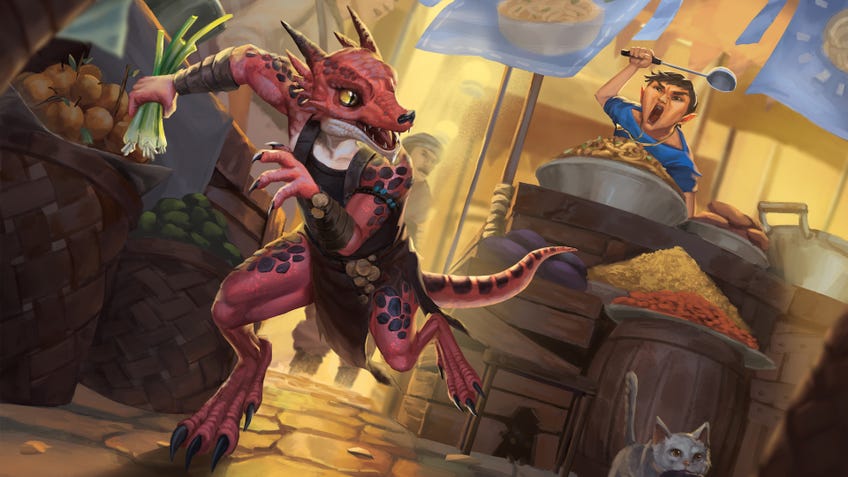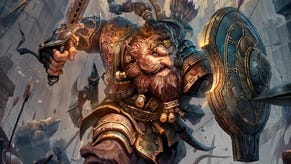D&D 5E languages explained: A guide to language in Fifth Edition
Every language you might encounter on your adventures.
Dungeons & Dragons 5E has so many languages that it’s easy for you to get lost in the sea of fantastical word vomit. With all the different races and creatures, players could be worried about which 5E language to pick when Common isn’t going to cut it.
D&D 5E languages
- Standard languages in D&D 5E
- Exotic languages in D&D 5E
- Favored Enemy languages
- Class-specific languages
- Domain languages
- Which languages should I pick during character creation?
- What are quick ways to learn new languages after character creation?
- Can I learn a new language with downtime?
- Are there mechanical benefits to knowing languages?
Languages in D&D 5E are a fantastic way to flesh out the world of your adventures - and, as complex as they may potentially be, it’s still meant to be playable at the end of the day. There are over 60 languages all-in-all in the current iteration of D&D 5E. You don’t need to know every single one, but it’s important to know why language is important and which ones to choose depending on your campaign.
What are the major languages in D&D 5E?
While there are dozens of dialects and languages within the lore of Dungeons & Dragons 5E, the ones listed in the main Fifth Edition rulebooks are going to bear the brunt of your adventures. A lot of the scripts often overlap, reflecting how symbols between languages have been standardised in their written form. These languages are further divided into two types: Standard and Exotic.
Standard languages in 5E
These languages are the bread and butter of the Forgotten Realms. Mortals, such as you and your party, are going to be speaking at least one of these because they are the most commonly used by the denizens of the world. Standard languages are typically much easier to learn and find speakers of in your average campaign.
| Standard Language | Script | Typical Speakers |
|---|---|---|
| Common | Common | Humans (and almost everybody else you will meet) |
| Dwarvish | Dwarvish | Dwarves |
| Elvish | Elvish | Elves |
| Giant | Dwarvish | Giants, ogres, firbolgs and goliaths |
| Gnomish | Dwarvish | Gnomes |
| Goblin | Dwarvish | Goblins |
| Halfling | Common | Halflings |
| Orc | Dwarvish | Orcs |
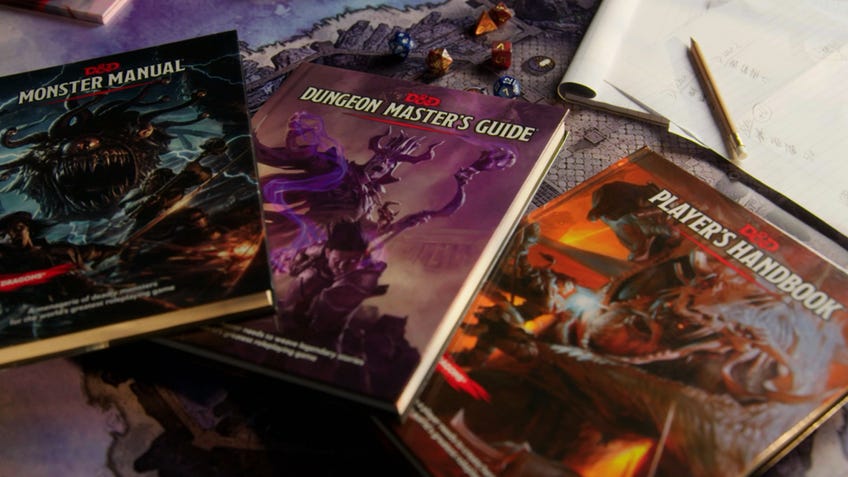
In addition to the languages in the 5E Player’s Handbook, there are setting-specific languages which primarily exist within a certain region. These regions or settings can be found in various sourcebooks and supplementary material for 5E.
| Setting Language | Script | Setting | Typical Speakers |
|---|---|---|---|
| Marquesian | Common | Wildemount (Exandria) | Inhabitants of The Menagerie Coast |
| Naush | Common | Wildemount (Exandria) | Ki'Nau Islanders |
| Zemnian | Zemnian | Wildemount (Exandria) | Inhabitants of the Dwendalian Empire |
| Leonin | Common | Theros | Leonin |
| Kraul | Kraul | Ravnica | Kraul |
| Loxodon | Elvish | Ravnica | Loxodons |
| Merfolk | Merfolk | Ravnica | Merfolk |
| Minotaur | Minotaur | Ravnica | Minotaurs |
| Sphinx | n/a | Ravnica | Sphinxes |
| Vedalken | Vedalken | Ravnica | Vedalken |
| Riedran | Common | Ravnica | People of Sarlona |
| Abanasinia | Common | Dragonlance | Abanasinians |
| Ergot | Common | Dragonlance | Northern Ergoth |
| Kenderspeak | Common | Dragonlance | Kender |
| Kharolian | Common | Dragonlance | Inhabitants of the Planes of Dust and Tarsis |
| Khur | Istarian | Dragonlance | Khur |
| Nordmaarian | Istarian | Dragonlance | Inhabitants of Nordmaar |
| Solamnic | Common | Dragonlance | Inhabitants of Sancrist, Solamnia |
It should also be noted that “Common” in one place may not be the “Common” in other settings. It's the DM's discretion how those sorts of things will work out. That said, Common is the most convenient way for DMs to allow communication between all players and NPCs.
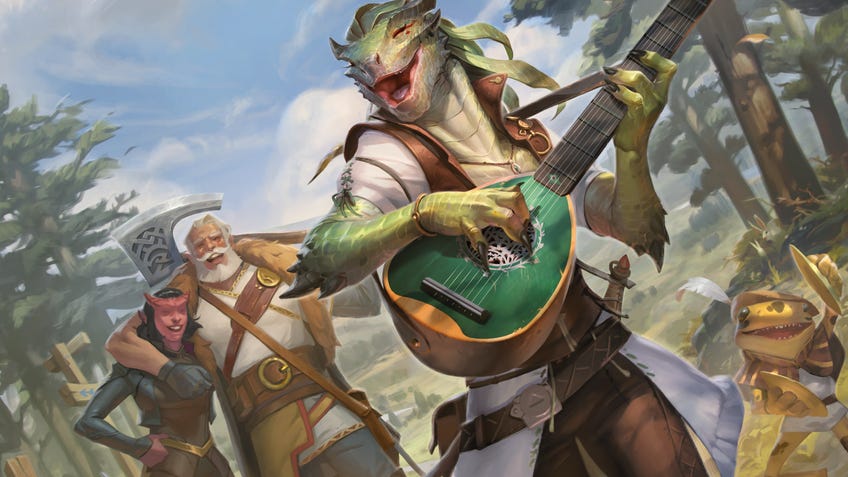
Exotic languages in 5E
In contrast, exotic languages in D&D 5E are rarely spoken in the mortal planes - or, if they are, only by a select few species and beings. They are typically reserved for ancient or extraplanar races to highlight how “alien” they are in comparison to the standard languages. If you meet a speaker of an exotic language, something strange is usually afoot.
| Exotic Language | Script | Typical Speakers |
|---|---|---|
| Abyssal | Infernal | Demons |
| Aquan | Dwarvish | Water Elementals |
| Auran | Dwarvish | Air Elementals |
| Celestial | Celestial | Celestials |
| Deep Speech | None | Mind Flayers and Beholders |
| Draconic | Draconic | Dragons and Dragonborn |
| Hadozee | n/a | Hadozee |
| Ignan | Dwarvish | Fire Elementals |
| Infernal | Infernal | Devils |
| Kothian | Kothian | Minotaurs |
| Primordial | Dwarvish | Elementals |
| Sylvan | Elvish | Fey |
| Terran | Dwarvish | Earth Elementals |
| Thri-Kreen | n/a | Thri-Kreen mantis men |
| Undercommon | Elvish | Underdark Dwellers |
There are only a few setting-specific exotic languages in D&D 5E, but they’re worth naming.
| Exotic Setting Language | Script | Typical Speakers |
|---|---|---|
| Quori | Quori | Inspired, Kalashtar, Quori |
| Istarian | Istarian | Ancient Istarians |
| Nerakese | Istarian | Inhabitants of Neraka |
Important note: the Elemental languages all count as “Primordial”, and understanding one Primordial language allows you to understand all of them. Think of them as different dialects of the same language, as opposed to completely different languages altogether. It’s the difference between someone from England and America, as opposed to languages between England and Japan.
Other D&D 5E languages
Here are languages that you might encounter outside of the ones listed above.
Minor languages from Favored Enemy
Favored Enemy is a feature from the Ranger class that grants you advantages against your chosen type of enemy. It grants bonuses to tracking (Wisdom) and recalling information (Intelligence) about the favoured enemy. Another way it helps against foes is by allowing you to learn the chosen creature's language, ensuring you know their every move.
While Favored Enemy covers the languages in the previous tables, it also includes minor languages used by specific creatures and entities. It’s not recommended to waste a spot on these minor languages unless it’s for roleplay reasons, or you’re expecting to see that creature a lot throughout the campaign.
- Aarakocran
- Blink Dog
- Bothii
- Bullywug
- Giant Eagle
- Giant Elk
- Giant Owl
- Gith
- Gnoll
- Grell
- Grung
- Hook Horror
- Ixitxachitl
- Kruthik
- Modron
- Olman
- Otyugh
- Primal
- Sahuagin
- Skitterwidget
- Slaad
- Tasloi
- Tlincalli
- Troglodyte
- Umber Hulk
- Vegepygmy
- Winter Wolf
- Worg
- Yeti
- Yikaria
Class-specific languages
These languages are tied to specific D&D 5E classes and prove exceedingly hard to crack. Specifically, Druidic and Thieves’ Cant are only understandable to Druids and Rogues by default. These aren’t traditional languages - more akin to a cypher - but worth noting nonetheless. Thieves' Cant and Druidic are particularly useful for sending subtle signals to each other during a tense situation.
Domain languages
Van Richten's Guide to Ravenloft features dozens of new languages specific to dark domains. They are far too numerous to list here, but they can be found on pages 64 to 173 of the D&D 5E sourcebook. It should be noted that learning the basics of peaceful intention and asking for directions will only take a week of downtime to learn.
Other obscure languages
The sheer amount of material for D&D 5E means it’s near-impossible to curate a complete list. There are languages such as Dark Speech, which psychologically harm the speaker, or specific versions of sign language that are specific to a particular race, such as the Drow. It’s the DM’s discretion to inform you of any new languages that may pop up.
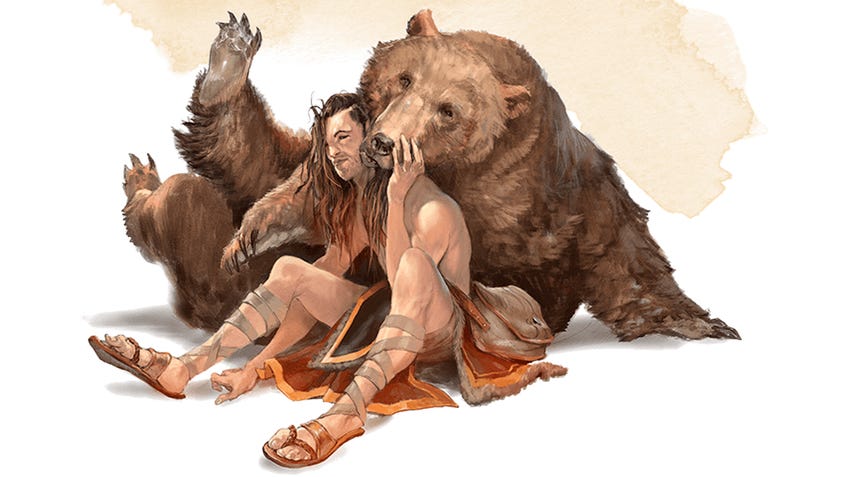
Frequently Asked Questions about D&D 5E languages
Here are some questions commonly asked about languages in 5E.
Which languages should I pick during character creation?
That is entirely dependent on the campaign you are running in. Truth be told, other than Common, there are no “universally” good languages to learn in D&D 5E. The race you pick will typically have their native tongue plus Common. That said, the languages in the D&D 5E Player’s Handbook are going to be the most common languages you will encounter on your journeys, so those are always reliable.
What are quick ways to learn new languages after character creation?
Subclasses can grant new languages. Rune Knights are so immersed in giant magic that they become fluent in the Giant tongue, for example. Make sure to check your subclass features closely for these bonuses. For feats, Linguist and Prodigy allow you to learn even more languages instead of a standard Ability Score Improvement (ASI). Of course, the quickest way to “learn” a language in a pinch would be through a spell or scroll such as Comprehend Languages or Tongues, which grants a temporary understanding of all languages.
Can I learn a new language with downtime?
According to page 134 of D&D 5E sourcebook Xanathar’s Guide To Everything, you’re able to use the downtime between campaigns and spend the appropriate resources to learn a new language with a tutor. The formula used is ten weeks minus the intelligence modifier of the character you use. There’s also a 10% chance of failure where a d6 is rolled to determine what happens, which is detailed on the noted page.
Are there mechanical benefits to knowing languages?
One of the most popular ways to resolve situations without a fight, Persuasion is borderline impossible if the two parties have no common language between them. Shrewd merchants are more inclined to bargain with those that speak their preferred tongue. There’s also the ability to hide your conversations by speaking another language. Alternatively, can also eavesdrop on unsuspecting enemies.
